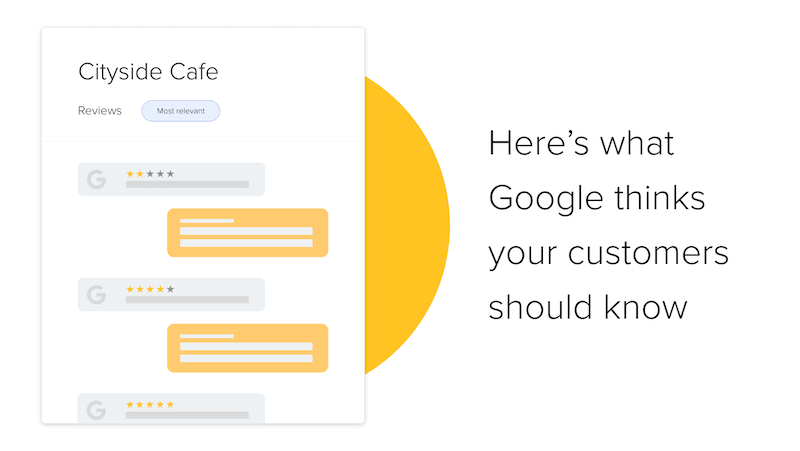-
Products
TechnologyManaged Services
- Resources
- Pricing
- Company
Google Reviews: Learn how Google selects which reviews are actually the most relevant to your business's local search results and Google Business Profile.

Romance doesn’t have to die after Valentine’s Day. There’s still time to take your boo out for a romantic dinner date. But where to? You head to Google and search: “most romantic restaurant near me,” Yeah, you think to yourself, I’m a great partner.
Picking the right spot is always a challenge, though. So you may just let Cupid's arrow defer to Google reviews when guiding your primrose path to amorous nutritional entanglement.
Many restaurant options will populate Google’s Local Search results, ranked in order of which ones the algorithm thinks you will like best. Cupid who?
%20(2).png?width=748&name=unnamed%20(6)%20(2).png)
It seems you have a couple of (expensive!) options: Italian, Steak, American - you like your options. So you turn to the Google reviews. As do we all.
As much as I want this to be a story of how your date turns out, it’s actually a yarn about reviews. Specifically how Google determines which reviews are most relevant for you.
When you choose a restaurant and go to its reviews, you’ll see that the page it brings you to doesn’t show all the restaurant’s reviews. It shows you the most relevant ones. Google automatically sorts by “Most Relevant” instead of “Newest.” For this restaurant, you can see that the first review that pops up is Donny P’s 5-month-old write-up.
There have been dozens of newer reviews about this restaurant since Donny posted. Why would Google feature a review from half a year ago?
Google’s algorithm is an ever-evolving beast that digital marketers and Local SEO experts are always chasing. Today we will share our insights on the criteria involved in how Google currently (2022) decides what reviews top the ‘Most Relevant’ order.
As we’ve discussed, Google wants to help you make the best decision possible, so it wants to give you helpful and relevant information as you make your decision. Recent reviews, while helpful in the sense that they provide timely customer feedback, may not end up offering useful content.
Google aims to offer you useful information and relevant facts about what it’s like to be a customer or guest at a business. Recent reviews will not always necessarily offer this.
What makes a review relevant or useful, according to Google?
Can you find all of these elements in Donny P’s review?
We’ve been talking so far about positive reviews, but negative reviews are not omitted from being considered most relevant. If a negative review is lengthy, specific, local, keyword-inclusive, and has the pictures to back it up, it will surely be considered to be featured on a GBP’s Most Relevant page. Google wants prospects to know when a business receives specific and useful, albeit critical feedback.
Whether you’re scouting out your next date night destination or you’re wondering why a certain review is always featured on your own business’ page, we hope you’ve gained some understanding as to how Google decides which reviews are most relevant.
The key to maintaining a Google Business Profile with the most relevant information to build trust with prospects and turn them into customers is to always be generating more reviews. We encourage businesses to consider automating review requests for the best results.
I’m a writer, philosopher, climber, mountain biker, and a fried-egg enthusiast. Before joining Widewail as a Review Response Specialist, I attended Middlebury College and studied Philosophy and Art History. I grew up in Michigan, but I fell in love with Vermont while in school.
Bite-sized, to-the-point, trend-driven local marketing stories and tactics.
Automated Review Generation
Video Testimonial Generation

Maintain Accurate Listings

Private Surveys
Review Response Managed Services
Social Media Engagement Services
©Widewail 2026.
U3GM Blog Post Comments